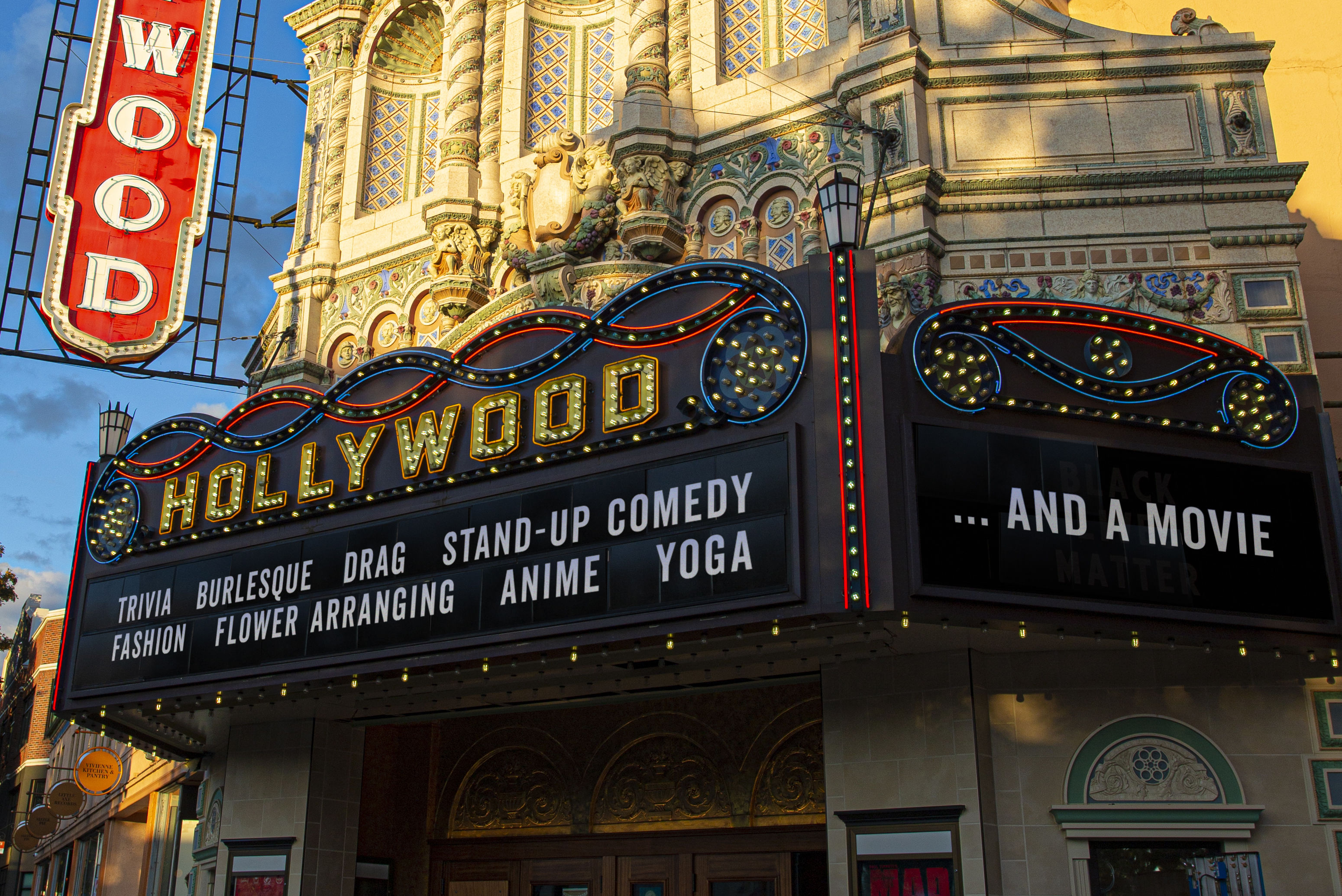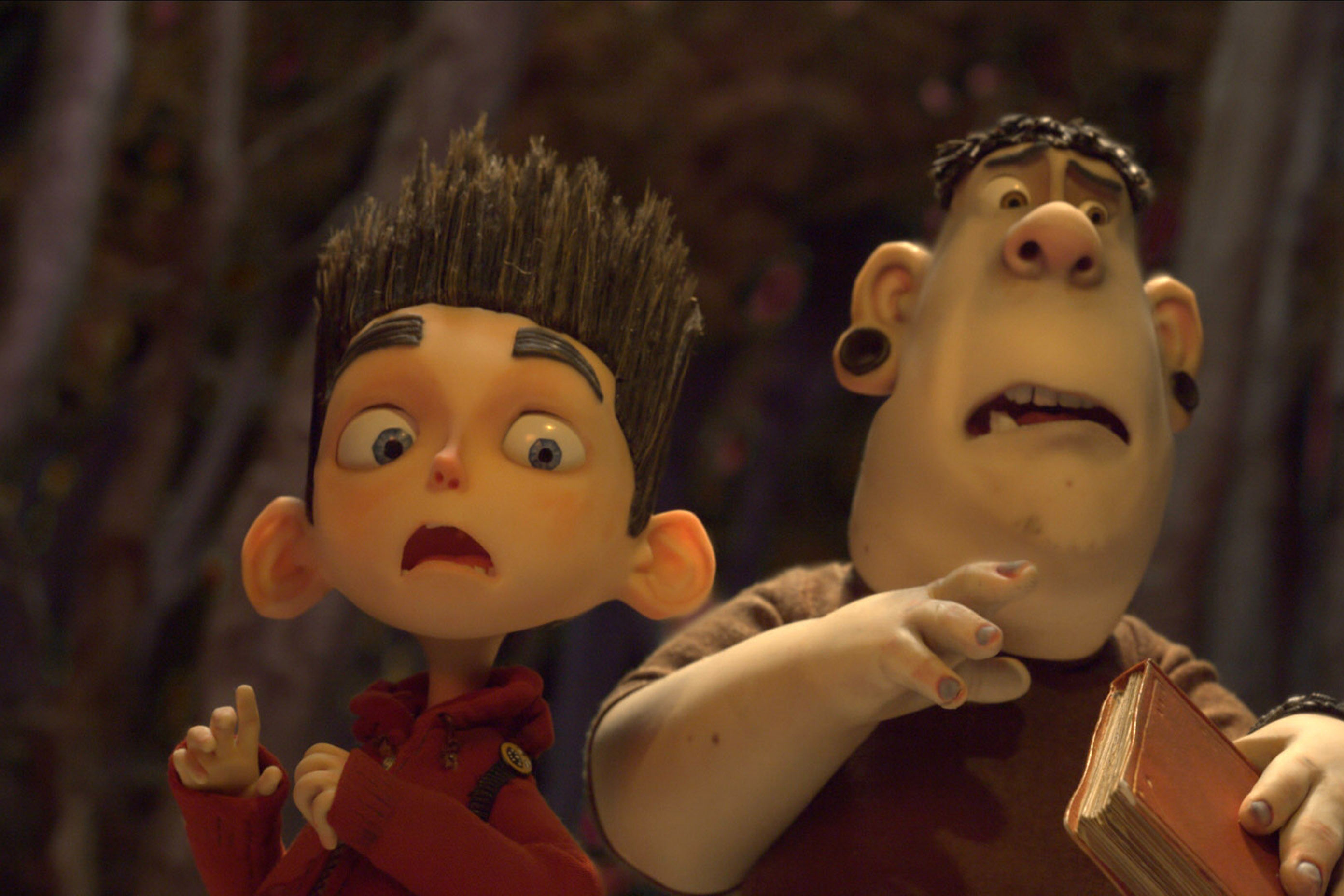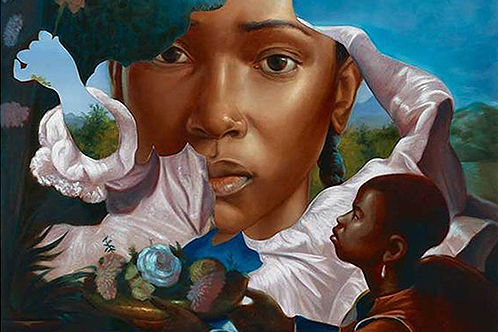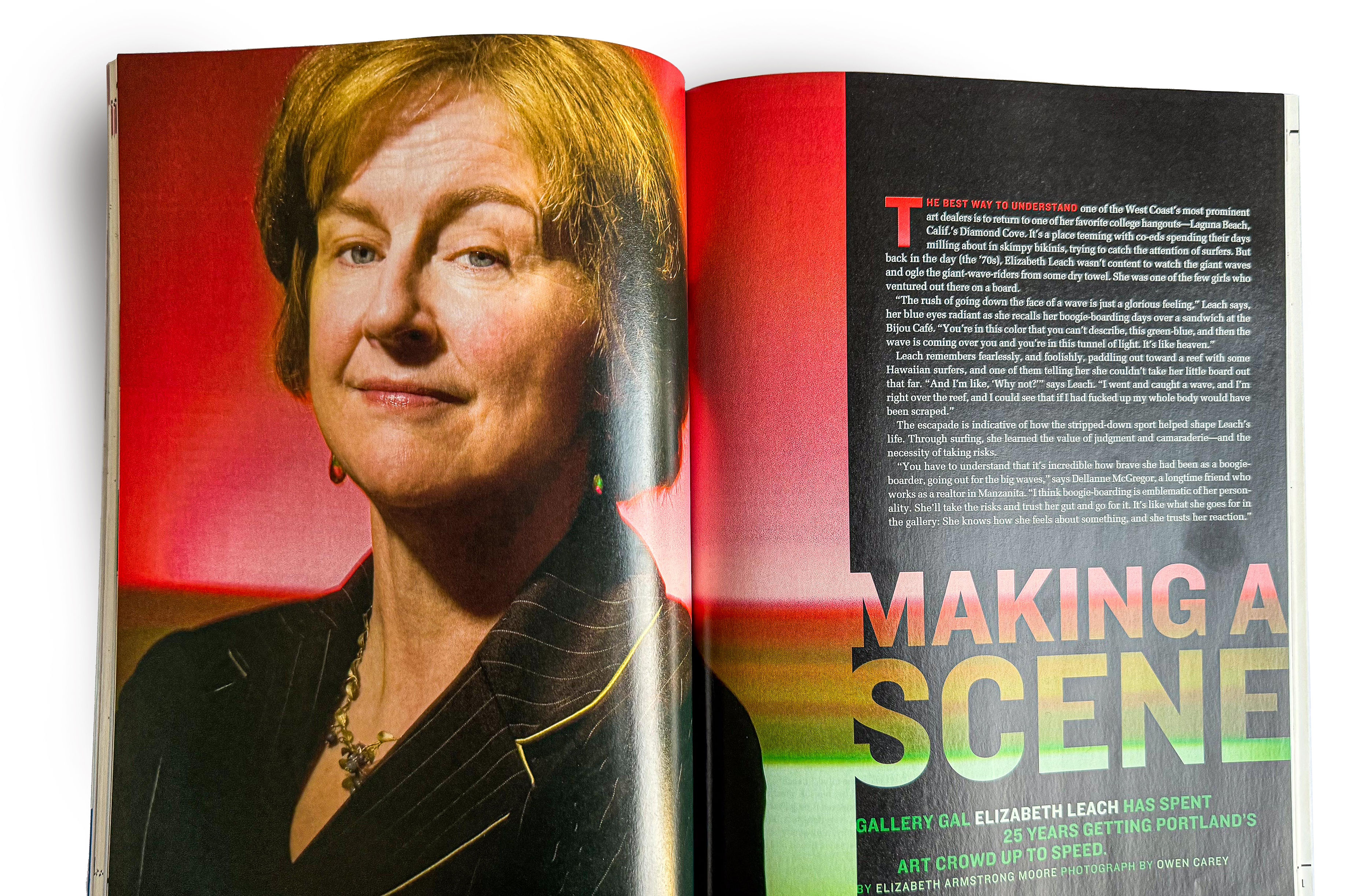Why Josie and the Pussycats Still Works 20 Years Later
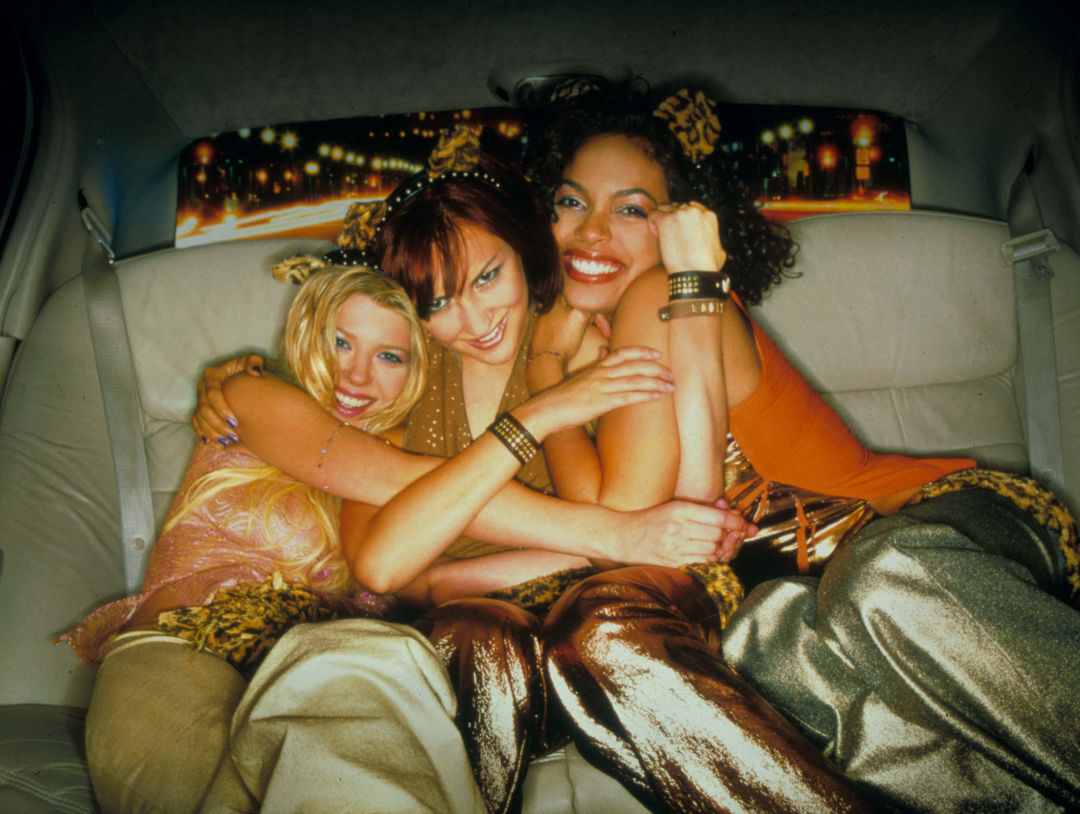
From left: Tara Reid, Rachael Leigh Cook, and Rosario Dawson in Josie & the Pussycats
Note: On March 2, the Hollywood Theatre hosted a conversation between Carla Rossi and Josie & the Pussycats cowriters and directors Deborah Kaplan and Harry Elfont. On April 11, the film turns 20. Portland Monthly decided to seize the opportunity to reflect on its legacy.
Every few years, we decide it's time to reframe our relationship with pop music. Throughout the 2010s, poptimism was on the ascent, in part as a reaction to the Pitchfork-hued indie rock snobbery that typified music talk in the late aughts. We celebrated work that either mimicked or made the Top 40, but, tellingly, we couldn’t quite let go of qualifiers—Carly Rae Jepsen was “a guilty pleasure”; Lorde was a prodigy first and a pop star second.
Often, the conversation boiled down to agency: Who’s writing the songs? Who’s running the show? And if the answer’s not clear (or if it is clear that the diva in our crosshairs is rarely picking up a pen), what do we do with that?
In its surprisingly thoughtful examination of these anxieties, 2001’s Josie & the Pussycats has earned a spot beside the likes of Legally Blonde in the “Y2K fluff that’s actually great” pantheon. The film turns 20 this April, and it’s aged well in a million ways: the glitter-dusted ’01 looks are back on the cutting edge; Parker Posey’s unhinged-villain performance is the stuff Twitter exhumes and launches tardy Oscar campaigns for. But perhaps the film's most prescient attribute is the way it treats the Archie comics–born band at its center.
During its initial theatrical run, Josie was savaged by critics and box office returns. Roger Ebert granted it half a star and called it a “would-be comedy.” Its budget exceeded its intake by more than $10 million. In the decades since, fans have revived its reputation, resulting in video essays like this and a 2017 rerelease of its soundtrack on purple cheetah vinyl that will now run you at least $100, if you can even track a copy down.
A major factor in this renaissance is that this Josie is not just a big-screen adaptation of the ’70s Hanna-Barbera show. It’s a semidystopian satire set in a brand-obsessed world where logos are visible at every turn, and the entire entertainment industry is run by a shadowy organization helmed by the mononymous Fiona (Posey) and Wyatt Frame (Alan Cumming). The movie's idiosyncratic tone and careful world-building place it beside titles like The Lego Movie or Babe: Pig in the City in that, as a viewer, you spend most of your time saying, "I can't believe they got away with this."
The production design, by Jasna Stefanovic—who’d worked on The Virgin Suicides two years earlier—stuffs cheeky product placement into every frame. (None of the brands paid for the advertising; they just signed releases.) Most of the music—both by the Pussycats and DuJour, an ’NSync knockoff featuring Seth Green, Donald Faison, and Breckin Meyer—was written by Adam Schlesinger, the Fountains of Wayne cofounder who died in April from COVID-19, and produced by Babyface, the R&B megastar who helmed Madonna’s Bedtime Stories and a healthy number of Boyz II Men hits.
And the music, specifically, is where Josie shines. Every song is a banger, the kind of hard/soft power pop bands like Charly Bliss are still churning out to great success. (In fact, the Brooklyn outfit has cited the film as a formative influence.) More important, though, is the fact that Josie's script never focuses its venom on the pop music that rockets the Pussycats to fame. Instead, it skewers the machinations that exploit that music to nefarious ends. In a cultural landscape still digesting something like Framing Britney Spears, that’s a timely distinction.
For the uninitiated: In February, the New York Times released an episode of its Hulu docuseries that focused on the rise, fall, and ongoing legal conservatorship of Britney Spears. The tone is largely corrective. It indicts the press, the paparazzi, Spears’s father, and plenty of others as it paints Britney not as an airheaded sex kitten who walked herself off a cliff with an umbrella in her fist, but as a formidable young talent eventually silenced by a machine hellbent on wringing her dry of every possible dollar.
To this writer’s taste, the doc doesn’t do quite enough to highlight or examine Spears’s artistic output, but it does regularly underline her talent. It never dismisses “…Baby One More Time” or “Toxic” as featherweight concoctions, the way people like Diane Sawyer or David Letterman did when they rendered Spears an unserious floozy in the aughts. In its first third especially, Framing Britney Spears points to a natural-born performer whose magnetism and work ethic formed the bedrock of an empire that would eventually rot before our eyes.
Josie & the Pussycats, which came out right between Spears's second and third albums, dares to treat its heroines the way Spears wouldn't be treated until 20 years later. Josie (Rachael Leigh Cook), Valerie (an impossibly young Rosario Dawson), and Melody (Tara Reid) write their own songs. Sometimes they're naive, and drummer Melody gets her fair share of “dumb blonde” gags, but the film is never cruel to them. The engine of the plot is that their manager, Cummings’s Wyatt, secretly encodes the band’s hits with subliminal messaging that manipulates the masses into stanning Matt Damon or buying orange sweaters. But the Pussycats don’t know he's doing this, and the film doesn't blame them for not knowing.
Once they uncover the plot that's put them on a pedestal, Josie and co. destroy a machine piping mind-control messages into an assembled audience and then perform a brand-new song, unmediated. The audience loves it. Who wouldn't? May he who can keep his cool when "Toxic" comes on at the bar cast the first stone. The movie doesn't insist the girls' slick empowerment anthems are high art, but it also doesn't deny their power. A lesser film would sneer at bubblegum pop and the hordes who consume it. This one presents it as the praiseworthy work of talented young artists capable of connecting with an eager, sweaty stadium.
That yearning—for pop stars to connect with their fans directly, independent of a well-oiled marketing apparatus—is another sign Josie was well ahead of its time. Instagram, TikTok, and Beyoncé's surprise-album-drop-heard-round-the-world, all stabs at pop star to audience intimacy, are proof of that. So is the mountain of "authentic" backstage docs on everyone from the Jonas Brothers to Taylor Swift.
Swift, in fact, is just as instructive a foil to Josie & the Pussycats as Spears. The film's third-act humiliation of the Pussycats' handlers (Fiona is revealed as an insecure lisper driven to hypnotize the public into thinking she's cool; Wyatt turns out to be an outcast albino with a fake British accent) exacts the kind of revenge Swift is currently seeking as she rerecords her first six albums to wrest control of the audio masters from music exec Scooter Braun.
The new recordings will sport the pointed parenthetical "Taylor's Version," and the artist-forward optics feel right at home beside Josie's message about the importance of musical agency. Swift will tackle 2008’s Fearless first. "Her version" drops on April 9—almost 20 years to the day after Josie & the Pussycats opened.
Those 20 years of hindsight have snapped the depth of Deborah Kaplan and Harry Elfont's vision into clearer focus than ever before. You can (and should) watch Josie & the Pussycats now and marvel at it as a Nostradamus-level bellwether of our collective pop consciousness. No doubt that consciousness will shift in the next 20 years, but we're not that complicated—something tells me this glittery Y2K artifact will still feel like a magic mirror in 2041.
Josie & the Pussycats is currently streaming on HBO Max. Check out the original trailer below.
